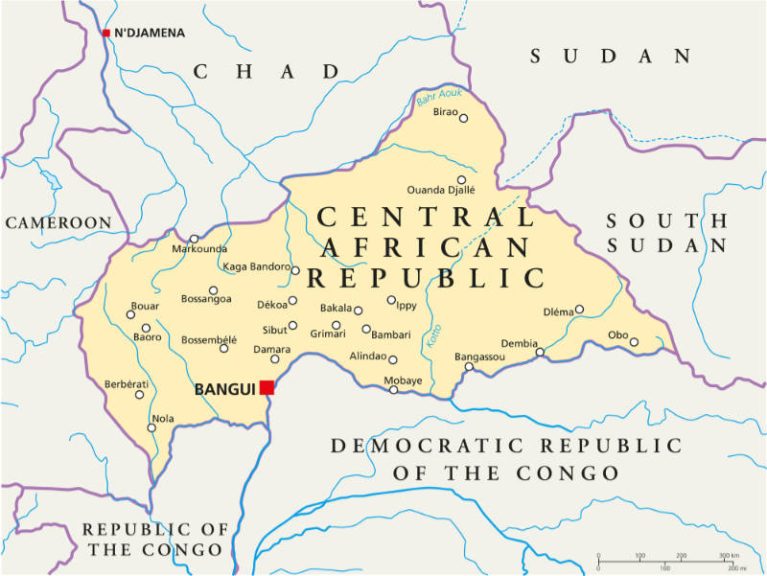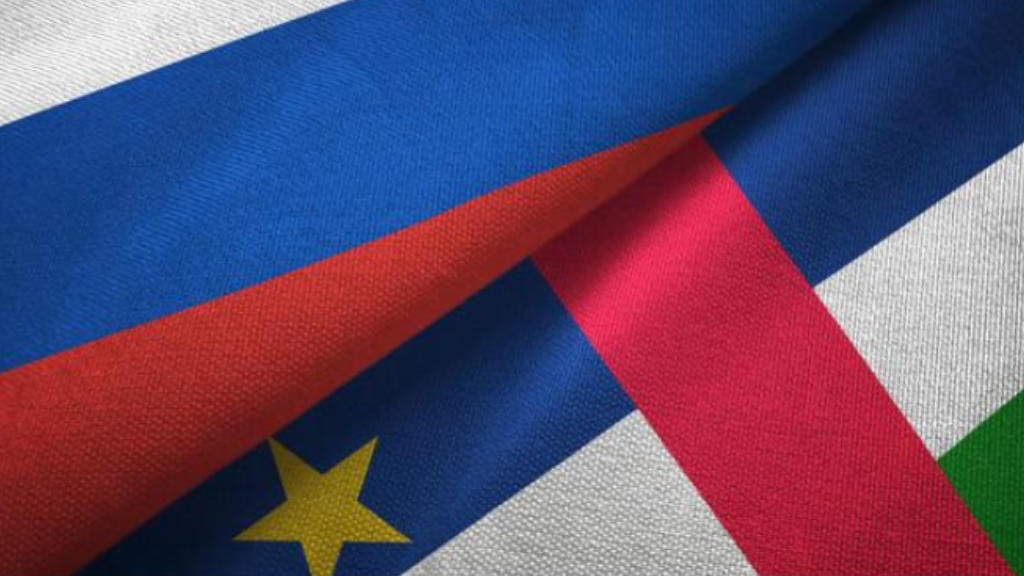Update: January 17
Russia and the CAR have signed a memorandum to enhance cooperation in agriculture, the Russian Ministry of Agriculture has announced. The agreement, signed by Russian Agriculture Minister Oksana Lut and CAR’s Agriculture Minister Gismala Hamza, focuses on strengthening trade, economic, and scientific collaboration. Discussions during the meeting included expanding bilateral trade and cooperation in areas such as scientific research, breeding, and seed production. The CAR has untapped potential in agriculture, with over 15 million hectares of arable land, but has stressed the need for agricultural specialists, equipment and in upgrading livestock. The CAR also wants to diversify the export of cotton and peanuts.
The President of the Central African Republic, Faustin-Archange Touadera, has arrived in Moscow to hold bilateral talks with Russian President Vladimir Putin for a three-day official visit. The Kremlin has stated that “The two presidents are expected to review the current state and future of political, trade, economic, and humanitarian bilateral cooperation, as well as the latest international and regional developments.”
Touadera’s visit to Moscow follows phone conversations with Putin in November last year. The growing ties come as the Central African Republic prepares for parliamentary elections this year and presidential votes in 2026, amid widespread concerns about potential disruptions caused by terrorist groups.
On November 20, the two leaders discussed counter-terrorism and ensuring stability in the former French colony, where rebels have been fighting the government for decades. According to a Kremlin statement, they also assessed the state of “friendly” bilateral relations and discussed prospects for expanding cooperation in areas such as politics, trade, economics, and humanitarian efforts. Later that month, Touadera expressed his gratitude to Putin for Russia’s pivotal role in helping lift restrictions on CAR’s diamond exports, which had been in place for more than a decade.
The mineral-rich country has experienced decades of militant violence and political insecurity, including six coups, since gaining independence from France in 1960. Despite the presence of thousands of UN troops under the Multidimensional Integrated Stabilization Mission (MINUSCA) since 2014, rebel attacks against the government have persisted.
Moscow and Bangui signed a military agreement in 2018, permitting Russian military specialists to train the country’s national police and soldiers. Earlier last year, Aleksandr Bikantov, Russia’s ambassador to the CAR, announced that plans were in progress to build a Russian military base in the country.

The CAR’s economy is primarily driven by agriculture, employing about 75% of the labour force and contributing around 28.6% to its GDP in 2023. Key agricultural products include cassava, peanuts, sorghum, millet, maize, sesame, and plantains. Cotton, coffee, and tobacco are significant cash crops for export. Despite its potential, the sector faces challenges such as infrastructure deficits and political instability. Mining is another important sector, particularly the diamond and gold industries. Diamonds account for approximately 54% of the CAR’s export earnings, while gold also contributes significantly. However, gold production saw a decline of 13% in the first half of 2024, partly due to increased smuggling in conflict areas. Timber, accounting for about 16% of export earnings, is another important industry. Manufacturing in the CAR is smaller in scale but focused on processing agricultural products like peanuts and fish, alongside small-scale production of beverages, machinery, and textiles.
The CAR is a member of the Economic Community of Central African States (ECCAS) and the Central African Economic and Monetary Community (CEMAC), which foster economic cooperation and facilitate the free movement of goods and services within the region. The CAR is also a signatory to the African Continental Free Trade Area (AfCFTA), promoting intra-African trade and industrialization. As a member of the World Trade Organization (WTO), the CAR has access to global markets. Additionally, under the African Growth and Opportunity Act (AGOA), it benefits from duty-free access to the U.S. market for eligible exports.
With a population of approximately 5.33 million, the CAR’s GDP (PPP) is estimated at US$6.91 billion, with a GDP per capita of US$1,300. National GDP grew at a modest 1.4% in 2024.
Bilateral trade with Russia has been minimal but stable, with trade valued at US$5.9 million in 2021. For 2022, 2023, and 2024, the trade turnover is estimated to remain around US$4 million. Russia imports mainly fruits, vegetables and related products, and the CAR imports Russian mineral oils and grain.
Further Reading
Russia Creating World Market Diamond Standards With Africa

 Русский
Русский













